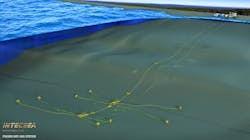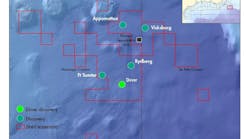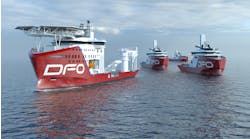Offshore staff
ABERDEEN, UK – Worley’s INTECSEA consultancy has funding from the Oil & Gas Technology Centre (OGTC) for prototype testing of its Pseudo Dry Gas (PDG) liquid removal system.
The technology is designed to make more long-distance subsea tiebacks commercially viable. By reducing back pressure in the pipeline, PDG is said to eliminate the need for topsides and costly compression.
Current prototype testing is based on a techno-economic concept study completed in March, also funded through the OGTC.
The study suggested the system could provide an additional $10 billion in revenue over alternatives for application in a known stranded gas basin, north of the Shetland Islands.
It also showed that PDG could reduce upstream carbon dioxide by 65-80%, significantly restricting the environmental footprint.
An additional application studied under the original OGTC scope was gas disposal for small oil pool developments. Results are said to indicate a stand-alone economic case with further benefits for normally unmanned offshore facilities, due to the removal of high maintenance topside gas processing equipment.
A 6-in. scaled prototype of the liquid removal unit will be tested over a six-month period at Cranfield University’s flow loop facilities north of London.
It will simulate flow conditions typically encountered in a gas / gas condensate subsea tieback system to demonstrate the liquid removal efficiencies.
Lee Thomas, INTECSEA’s engineering lead for PDG technology, said: “The solution is elegantly simple; it uses multiple passive liquid removal units and a liquid disposal pipeline connected to proven standardized pumps.”
Graeme Rogerson, marginal developments project manager for the OGTC, added: “There are over 360 marginal developments in the UK continental shelf, [each] with approximately 3-50 MMbbl of untapped oil and gas…
“The search will soon begin for an operator willing to undertake a pilot project of an integrated unit. An ideal pilot would be maintaining gas production from an existing tieback post-water breakthrough in a mono ethylene glycol-constrained environment.
“This would create a significant value impact, with a minimal downside. Given the range of applications for this technology across a broad spectrum and the positive underlying economics, the project team is hopeful an operator will step forward.”
05/10/2019



